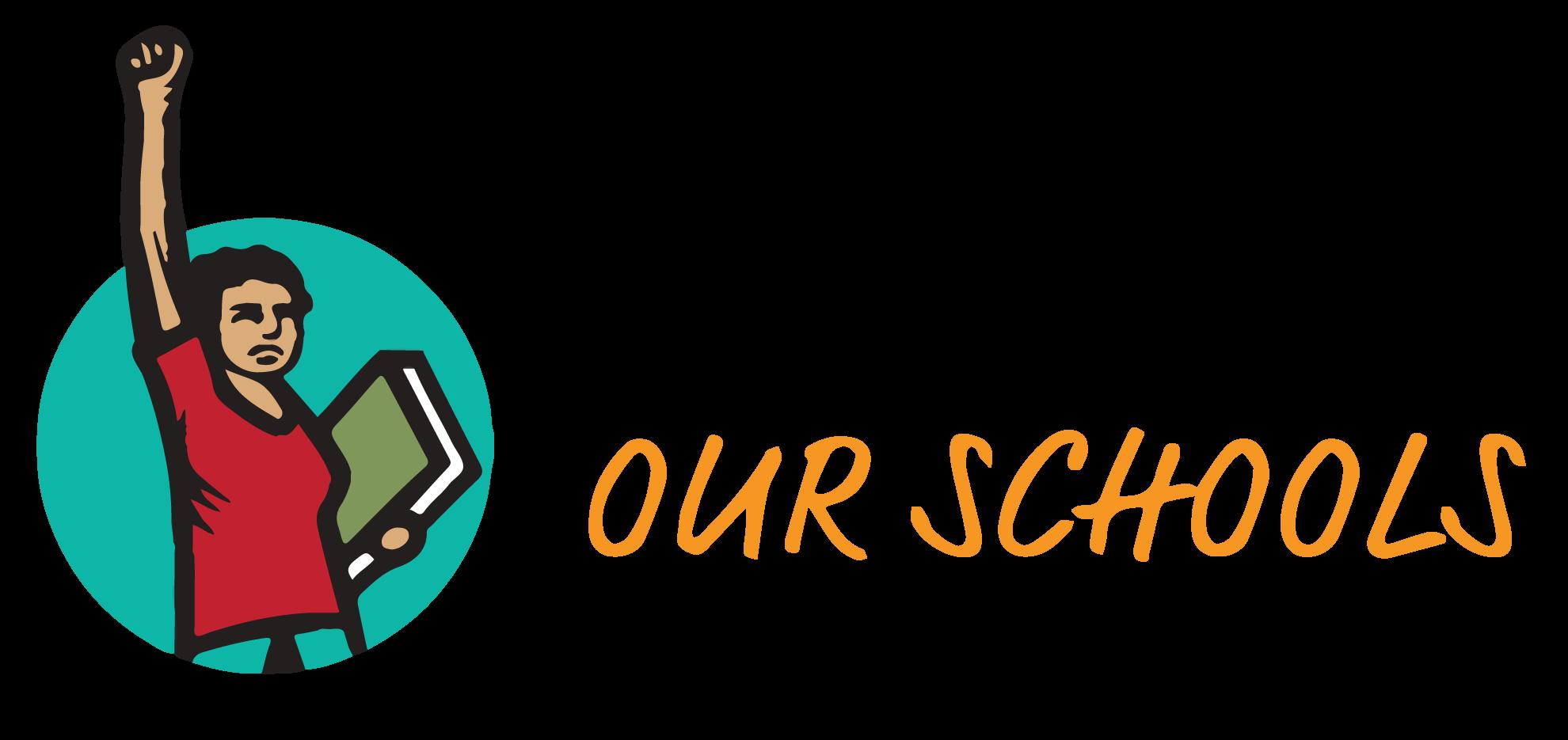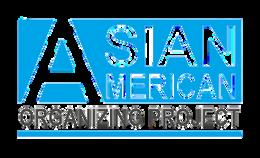For more information contact Isabella Cook, Youth Program Organizer at Unidos MN bella@unidos-mn.org


For more information contact Isabella Cook, Youth Program Organizer at Unidos MN bella@unidos-mn.org





The 2023 Our History, Our Schools Ethnic Studies Campaign consists of education justice groups, such as the MN Ethnic Studies Coalition, youth groups, base-building organizations, and community supporters.















The fight for ethnic studies began in 2019, with a group of students from Minneapolis and St. Paul schools who believed their education was leaving certain identities, cultures, and histories outside of the classroom.
Together, they launched the Our History, Our Schools campaign, which pushed to have Ethnic Studies be a High School requirement for graduation. These efforts ultimately led to the creation of the Ethnic Studies Coalition and the Youth 4 Ethnic Studies Coalition in 2019. The ESC expanded to organizations from across the state of MN and include youth, parents, educators, researchers, policymakers, and many others. They have organized for to Minnesota effectively educate all students by providing a more holistic and accurate curriculum. With the support of the ESC and other organizations, the 2023 Our History, Our Schools Ethnic Studies Campaign was launched with the introduction of a new bill (HF1502/SF1476)
 MN Ethnic Studies Coalition Organizations
MN Ethnic Studies Coalition Organizations
Minnesota’s K-12 student population is rapidly becoming more diverse, but the classroom learning experience in our state does not yet reflect our student population. Students of all racial and ethnic identities in Minnesota would benefit from instructional content that better reflects the diversity of their classrooms and their communities After electing a historic DFL trifecta, Minnesota lawmakers have an unequaled opportunity to bridge the ethnic and cultural divide in Minnesota classrooms by incorporating ethnic studies instruction for all students
We have all been called here today to show our support towards the Ethnic Studies for All bill (HF1502/SF1476) and because we share in the belief that our youth deserves the opportunity to have a more inclusive, globally- and community- minded classroom education.
All in attendance will get to hear from a list of fantastic speakers who believe in the power of Ethnic Studies. You will also have an opportunity to speak about the issue with your district senator!!
WHERE/WHEN: Capitol Rotunda from 9:30 AM - 12:00 PM
9:30 AM Arrival and Registration
9:35 AM Welcome and social media call to action
10:00 AM Rally begins
Samira Salah - Washing Technology Magnet Secondary School, SPPS
Jocelyn Thepmontry - Worthington Middle School - Unidos
Senator Mary K. Kunesh
Representative Samantha Sencer-Mura
Kimberly Colbert - BIPOC ES Teacher
Dr. Keith Mayes - University of Minnesota
Dr. Brian Lozenski - Macalester College
Governor and LT. Governor (invited)
10:40 AM Legislative visits instructions
10:45 AM Time to get into groups - Rotunda groups and Floor groups
11:00-11:45 AM Pull senators off floor
11:30 AM Food Arrives
12:00 PM Event Wrap-Up
For more information contact Isabella Cook Youth Program Organizer at Unidos MN bella@unidos-mn org
Joining us in person on February 27th? We will be in the rotunda for the rally! Here's some maps to help guide you to your elected official's office to rally their support.


The Ethnic Studies for All bill (HF1502 Sencer-Mura, SF1476 Kunesh) offers the opportunity to bridge the ethnic and cultural divide in Minnesota classrooms by incorporating ethnic studies instruction for all students.
The Ethnic Studies for All legislation would:
1 Require ethnic studies instruction in all K-12 schools, starting with high school students who would be required to take an ethnic studies course to graduate;
2. Create an Ethnic Studies Advisory Working Group composed of a diverse array of educators, students, and community experts to advise MDE on ethnic studies content and standards and to develop model ethnic studies curriculum;

3 Provide support to aid school districts in the development and implementation of ethnic studies curriculum, tailored to their community needs and interests

All students deserve to see themselves – their own cultures, communities, and histories – within their education. It is no surprise that studies have found that when students’ experiences and backgrounds are reflected in their curriculum, they become more engaged in learning, they have a greater sense of belonging, and they achieve better educational outcomes.
Students of all racial and ethnic identities benefit from Ethnic Studies Today’s students are growing up in a more globalized and interconnected world Ethnic Studies invites students to more deeply explore the many diverse cultures and histories within our state and country, and in doing so gain a better understanding of themselves and their classmates Ethnic Studies equips students with the knowledge and perspectives to live and lead in a more diverse, globalized, and interconnected world
Over 30 school districts across Minnesota currently offer Ethnic Studies courses
Two of Minnesota’s largest school districts – Minneapolis and St Paul – recently implemented Ethnic Studies graduation requirements for high school students
Twenty-one states around the country have introduced bills to require Ethnic Studies or multicultural history for K-12 students These school districts and states recognize that Ethnic Studies benefits entire student populations HF1502/SF1476 would ensure that all Minnesota students are able to benefit from Ethnic Studies instruction.
Every year the state of Minnesota calls for a "session" In order for the ethnic studies bill to become a law, it needs to go through the full process in the House of Representatives while it also moves in the Senate. Once both chambers vote to pass the law, it then goes to the Governor to sign and become a law!
1
Theproposedbillstopsby severalcommitteesmade upbyrepresentativesthat willreviewthelanguage, debateinfavororagainst theproposedbill,andwill votetodeterminewhether thebillcanmovetothe nextcommitteeornot
Authorsandco-authors introducebillonce languageiscrafted
2 3
Iftheproposedbillis votedandpassed throughthedifferent committees,thebill goestothefullhouse ofrepresentativesand isputupforvote
TheEthnicStudiesforAll billhasitsfirststopinthe EducationPolicy committeeonFebruary 28th.Then,itwillmake anotherstopatthe EducationFinance Committee Pleasebeon thelookoutforhearings andcomeifyouareable!
As of 2/27/2023 we are here
1
Theproposedbillstopsby severalcommitteesmade upbysenatorsthatwill reviewthelanguage, debateinfavororagains theproposedbill,andwill votetodeterminewhether thebillcanmovetothe nextcommitteeornot.
BILLGOESTO THESENATE FLOOR
2 3
Thereare134 representatives The ethnicstudiesforall billneeds50%+1 votetopass Thatis 68votes
Authorsandco-authors introducebillonce languageiscrafted
TheEthnicStudiesforAll billwillmakestopsatthe EducationPolicy Committeeandthe EducationFinance Committee Pleasebeon thelookoutforhearings Thisiswhereyourstories canbeheard!
IftheEthnic Studiesfor all proposalis passedbyboth theHouseand theSenate,the billthengoesto theGovernor's desk
Iftheproposedbillis votedandpassed throughthedifferent committees,thebill goestothefullsenate floorandisputupfor vote 4
If the governor of Minnesota signs the bill, it becomes a law and the law is passed to the department of education so it can be implemented
Thereare 67 senators Theethnic studiesforallbill needs50%+1vote topass.Thatis 34 votes
Here's some tips to meet with your legislator! During the meeting:
Be patient and keep the conversation to the point Make sure to speak of how having or NOT having ethnic studies has impacted YOU
Meeting with representatives regarding the things that affect us, like ethnic studies in schools, is easy because our legislators work for US! We don't need to be policy experts, we just need to share our story.
Why do we meet with our representatives?
We meet with our representatives to ask for their support on issues. Today, we are meeting with them to ask for their support for Ethnic Studies for All! A bill that will be worked and voted on during the 2023 MN Legislative session.
How can I go about the meeting?
Before you start, have roles for people set. Since these are short meetings, aim to have one facilitator, one to two testimonies (2-3 minutes max), and one notetaker

Present yourself with your name and your political organization, Unidos MN.
- For example: “My name is Rosi and I am here with Unidos Minnesota”
Introduce the other people in the room!
- For example: “These are my classmates (then stay their names)”
Give your testimony! A testimony is simply a snapshot of your experience or your life. (1-2 minutes)!
-For example: "I went to a school that did NOT have ethnic studies, this is how it impacted me ......" or "I go to a school that currently has ethnic studies classes, this has impacted me because I get to learn about my culture and other cultures ... etc"
Share your petition(s) with the representative:
For example: "We are here today to ask for your support to:
1) Require ethnic studies instruction in all K-12 schools, starting with high school students who would be required to take an ethnic studies course to graduate;
2) Create an Ethnic Studies Advisory Working Group composed of a diverse array of educators, students, and community experts to advise MDE on ethnic studies content and standards and to develop a model ethnic studies curriculum;
3)Support school districts in developing and implementing ethnic studies curricula tailored to their community needs and interests"
Make sure to ask for a clear answer to the petition!
For example: “Will you support the Ethnic Studies for All bill?” “Will you be voting in favor or against this bill?”
Even if you don't get the chance to talk to your representative today, you can take the time to write a quick testimony that can be delivered to their office!
This is not the first campaign that is working towards Ethnic Studies inclusion in MN schools. However, this political moment is unique with benefits that are impactful to students and all members of our communities!
Ethnic Studies is the interdisciplinary study of the histories, cultures, issues, values and beliefs of racialethnic groups within and beyond the United States. It focuses on themes of race and racism; inequality and power; identities, culture and representation; and the impact of such processes on the social, economic, and political atmospheres of today
WHY IS ETHNIC STUDIES IMPORTANT?
An Ethnic Studies approach to education is critical to helping Minnesota youth develop a holistic understanding of the world around them-- including their community, their own identity, and histories and perspectives across space and time It provides students with a fuller, more inclusive education that captures all of our state's diverse student populations.
WHAT CAN ETHNIC STUDIES DO FOR OUR COMMUNITIES?
When everyone gets the chance to learn about everyone in their community, it brings us closer. Ethnic Studies invites students to reflect and bond over similarities, beyond all racial and socio-ethnic barriers, and to learn to respect our differences It creates an atmosphere of acceptance, and a community that is oriented around cooperation and understanding.
HOW DOES THE 2023 ETHNIC STUDIES BILL DIFFER FROM PREVIOUS?
This year's bill asks for an Ethnic Studies graduation requirement with Ethnic Studies standards in place that go beyond social studies. It includes a working advisory group that supports class material and instruction. The bill also addresses Ethnic Studies Teacher licensure through PELSB’s Standards of Effective Practice.
Today nearly 300 hundred people will be gathering at the State Capitol to advocate for Ethnic Studies. This gives us the perfect opportunity for us to share with our elected officials and state why Ethnic Studies matters to us. Here are some ways for you to advocate for Ethnic Studies and share your story of why it matters to you!!
Share on Social Media!
Take a picture and share it on social media
Let your friends, followers, and community know that you are at the capitol with nearly 300 people in Minnesota advocating for Ethnic Studies
Instructions for Twitter/Facebook/Instagram:
Take a picture
Write why you support Ethnic Studies Include hashtags #MNEthnicStudies #EthnicStudiesforAll #OurHistoryOurSchools #ES4ALL
Contact your legislators!
Scan the QR code below and fill out every action form. The form will have a section for you to share your story with your elected official.

Pack the room! First committee hearing!
Join us on Tuesday, February 28th from 3 PM - 5 PM at the MN State Capitol! The first hearing for Ethnic Studies will happen on that day and we need people like you to show up and share your stories!
For more information contact Isabella Cook, Youth Program Organizer at Unidos MN bella@unidos-mn.org